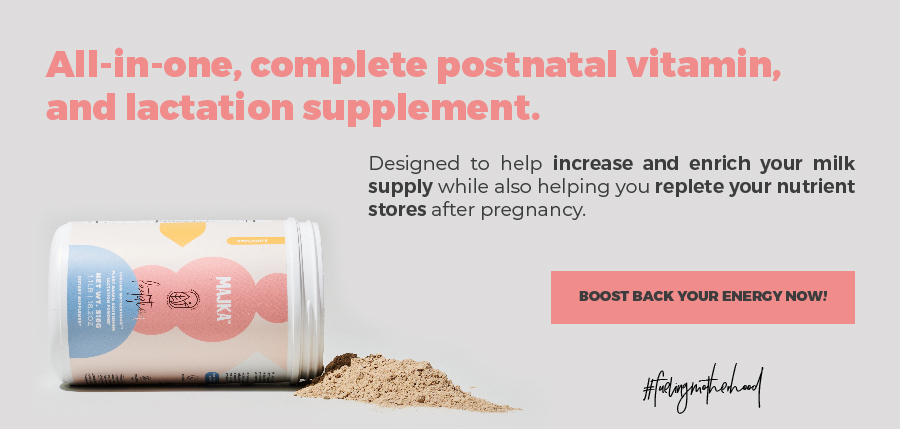
In this article we will talk about alternatives that you can have when going back to work if you are breastfeeding, whether you decide to keep up producing milk or to stop.
There is no right or wrong here, it is a matter of what’s best for you and for your baby and to make the necessary adjustments to get this done.
Going back to work and breastfeeding
Having your baby with you all day definitely makes breastfeeding convenient. But, when going back to work, you may need to make some changes in your routine, but that doesn’t mean that you need to stop breastfeeding.
Can my milk production decrease if I only pump and not nurse?
Your breast will produce milk depending on how often they are stimulated to do it, it doesn’t matter if this is done by nursing or pumping.
Some lactation consultants even recommend pumping after nursing to stimulate more milk production if needed.
What can I do to keep producing milk while working full time?
If you are working full time outside your house, or if for any reason, you are not able to nurse your baby while working, you can still produce milk.
In order to maintain your milk supply you will need to pump your milk every 3 or 4 hours for 15 to 20 minutes (keep in mind that you may need an extra time to set up and to clean up afterwards).
For this, it is important to know your rights and communicate your needs with your employer; for you to get the time and place to be able to pump.
*Depending on the state you live in, your employer may be required to have a pumping space that isn’t a bathroom for example.
Planning ahead is also important, you may want to learn your way through pumping before going back to work in order to feel comfortable with your needs regarding time, space and things you need to carry with you.
Depending on your job, you may also need to plan ahead to make the necessary arrangements with your employer and coworkers to make pumping accessible in times where it doesn’t interfere with important activities or where you can get help from others.
Keep in mind that supporting you as a breastfeeding mom can be beneficial for your employer too, as the absence due to child sickness reduces, there is lower recruitment and training time needed and if you feel well treated at your job, this will always incentive you to maintain a healthy and efficient work environment.
How do I stop producing milk?
While getting back to your routine you may decide to stop producing milk and to give your baby other feeding alternatives such as solids or formula depending on your baby’s age (always consult your doctor before making a change so you can know what is best for you and your family regarding health).
As we mention, breastmilk production depends on the demand that your breasts have, as your body will produce more milk if you are nursing more often for example.
*Demand isn’t the only reason why your body changes its milk production, other factors like feeling stressed or anxious, getting sick or changes in your diet can impact on your milk supply as well.
To stop producing milk, you can start by demanding less; whether you express less milk each time or you take longer to nurse or pump. Be aware to do this in a natural and slow way, as to cut it off all of a sudden can produce pain in your breast, as well as engorgement or infection.
*To learn what weaning means to your baby regarding psychological and developments effects check out our article call “When to wean and what impact will it have in my child’s development”
How long does it take to stop milk production?
The stop of milk production can happen naturally as your baby is growing and the feeding routine is changing, but if you wish to do it before this happens, as we mention, the recommendation is to do it naturally and slowly.
Depending on your specific case, milk production can take a few weeks or several months to stop; there isn’t an exact amount of time reported.
But if this has become a problem for you, you can always visit your doctor and question if you can get a different alternative such as medication.
What happens to my milk when I stop breastfeeding?
If you stop breastfeeding or pumping, your body will stop producing milk, and the milk that is already produced will be reabsorbed and diminished by your body. As this is a gradual process it is normal to notice a leak in your breasts or to be able to express some milk after a while.
*Keep your healthcare provider close and feel free to get checked or to ask for any doubt that you have regarding your health.
Does my body have any effect when it stops producing milk?
Weaning not only affects your baby but you too, as it is a hormonal and physical adjustment for you.
As you stop producing milk, your breastfeeding hormones (oxytocin and prolactin) reduce which can make you feel an emotional roller coaster that includes sadness and anxiousness. This can take a few days or weeks to regulate and make you feel better.
When oxytocin and prolactin reduce, progesterone and estrogen levels rise making ovulation and menstrual cycle to come back (in some women it comes back before weaning) so you may be experiencing hormonal shifts from this as well.
Aside from hormonal changes, your breasts may feel different than they used to while breastfeeding, they may have a lumpy feel and appearance and it is most likely that they will go back to their original size; your nipples may darken their color.
As these changes are normal, each body is different, so if you are experiencing any change that you don’t feel comfortable with or doesn’t seem ok to you, call your doctor and make sure that everything is alright.
You have done an amazing job by giving life to a child, be patient and kind with yourself and with your changes; remember that this isn’t permanent but a process that you will come through and it’s ok to get all the help you need while it happens.
In Breastfeeding 101 we hope this information has been helpful for you to learn and understand more about going back to work and what it can mean to your milk supply.
We invite you to follow us to get more content about this process you are experiencing.
In the following we share with you more sources regarding the topic of this article:
- Assessing Workplace Breastfeeding Support Among Working Mothers in the United States I SageJournals
- Breastfeeding and going back to work I NHS
- Breastfeeding at the workplace: a systematic review of interventions to improve workplace environments to facilitate breastfeeding among working women I National
- Library of Medicine
- Executive Summary of Hormonal Physiology of Childbearing: Evidence and Implications for Women, Babies, and Maternity Care I National Library of Medicine
- How to Keep Pumping When You Return to Work I The New York Times
- How to stop breastfeeding I NHSNutrition During Lactation I National Library of Medicine
- Parents’ behavior influences bonding hormone oxytocin in babies I Max-Planck-Gesellchaft
- Study reveals the dynamics of human milk production I MIT News
- The Phases of Breast Milk I USDA
- 4 factors that can decrease breast milk supply – and how to replenish it I UTSouthWestern
Avery Reckers






